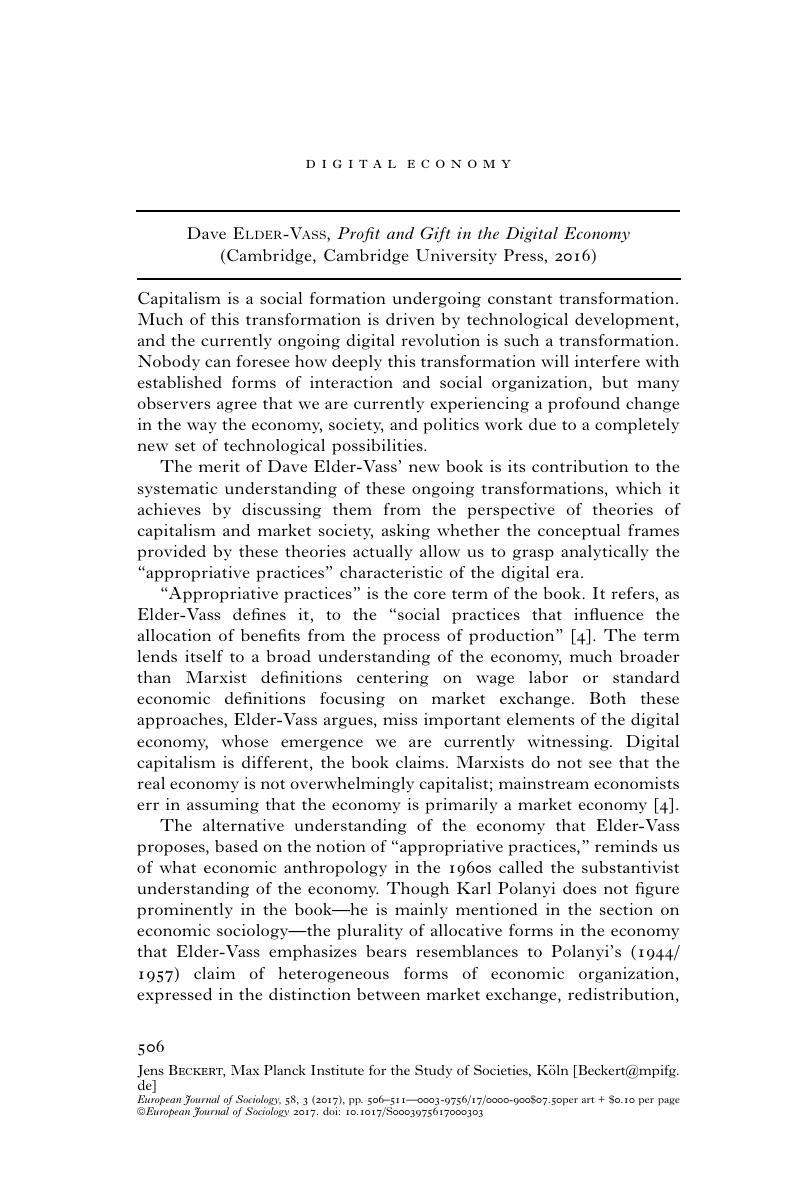Article contents
Digital Economy - Dave Elder-Vass, Profit and Gift in the Digital Economy (Cambridge, Cambridge University Press, 2016)
Review products
Published online by Cambridge University Press: 04 December 2017
Abstract

- Type
- Book Reviews
- Information
- European Journal of Sociology / Archives Européennes de Sociologie , Volume 58 , Issue 3 , December 2017 , pp. 506 - 511
- Copyright
- Copyright © A.E.S. 2017
References
1 Dave Elder-Vass, 2014, “Commerce, Community and Digital Gifts”, in R.F. Garnett, P. Lewis and L. Ealy, eds., Commerce and Community: Ecologies of Social Cooperation (Abingdon, Routledge: 236-252). Dave Elder-Vass 2015, “Free Gifts and Positional Gifts: Beyond Exchangism”, European Journal of Social Theory, 18: 451-468.
2 Eric Olin Wright, 2010, Envisioning Real Utopias (London, Verso).
3 A similar point could be made with regard to open access publications more generally. All these models presuppose that authors receive income from somewhere else.
4 Anand Giridharadas, 2015, The Thriving World, the Wilting World, and You https://medium.com/@AnandWrites/the-thriving-world-the-wilting-world-and-you-209ffc24ab90.
5 See for instance the following quotation: “Recognising the diversity of our existing economy provides grounds for some limited optimism about the possibility of significant economic change. The domination of our economies by capitalism is less than it might seem from prevailing discourses of the economy, and it must be possible to build alternatives alongside capitalist economic practices since many alternative forms are already thriving” [228f].
6 Luc Boltanski and Eve Chiapello, 2007, The New Spirit of Capitalism (London, Verso).
7 Elder-Vass [229] is aware of this: “Alternative appropriative practices can themselves be entangled in capitalist forms.”
- 2
- Cited by


